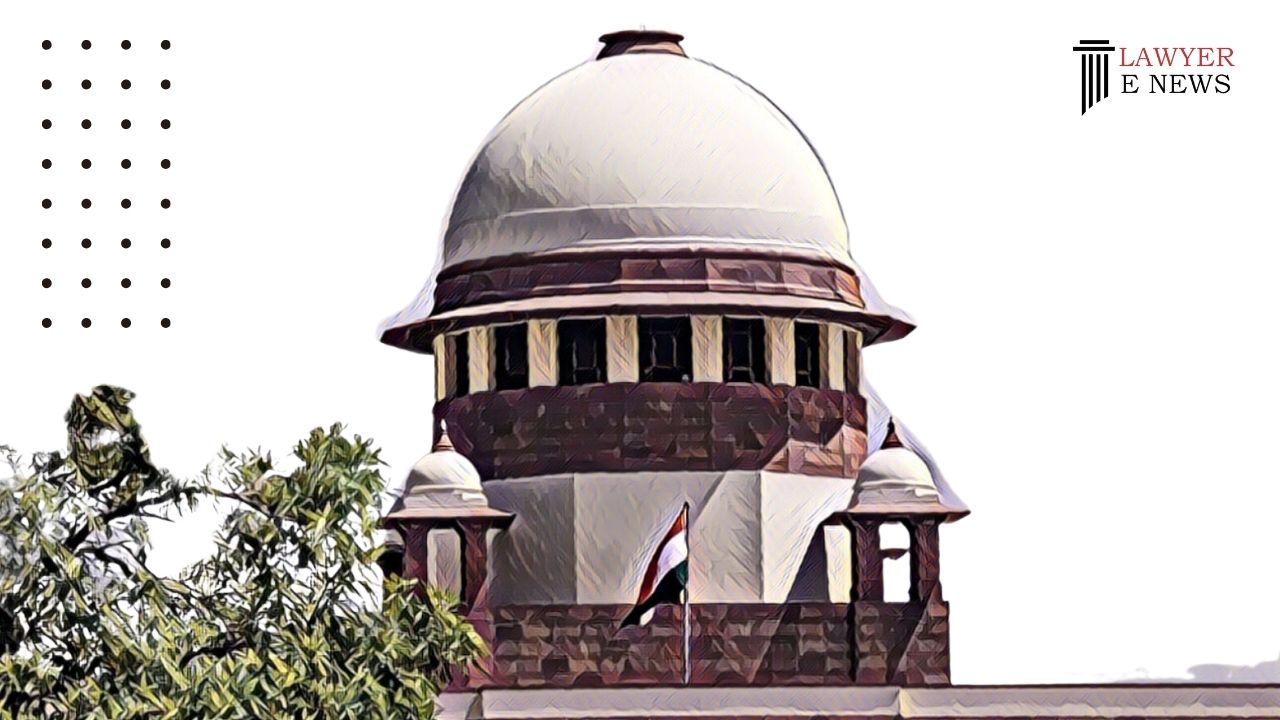-
by sayum
14 February 2026 2:22 PM



Apex Court Classifies BOT Toll Agreements as Leases, Upholds 2% Stamp Duty Imposition in Madhya Pradesh
The Supreme Court of India, in a landmark judgment, has upheld the imposition of stamp duty on concession agreements executed under the Build, Operate and Transfer (BOT) Scheme, classifying such agreements as leases rather than licenses. The judgment, delivered by a bench comprising Justices Vikram Nath and Ahsanuddin Amanullah, dismisses the appeals challenging the Madhya Pradesh High Court’s decision, which had upheld the stamp duty demand. This ruling clarifies the interpretation of such agreements under the Indian Stamp Act, 1899, and the Transfer of Property Act, 1882, emphasizing that the doctrines of legitimate expectation and promissory estoppel cannot override legislative amendments made in public interest.
The case revolves around several appeals filed by M/S Rewa Tollway P. Ltd. And others against the State of Madhya Pradesh and Madhya Pradesh Rajya Setu Nirman Nigam Ltd. (MPRSNN). The appellants were awarded contracts for road construction projects under the BOT Scheme. Initially, the state government had issued clarifications exempting such agreements from stamp duty, which led the appellants to enter into concession agreements based on this exemption. However, an amendment in 2002 introduced a 2% stamp duty on the amount likely to be spent under these agreements, which was subsequently enforced, leading to substantial financial demands on the appellants.
The appellants argued that the state’s initial clarification created a legitimate expectation that no stamp duty would be levied and that the subsequent amendment violated the principle of promissory estoppel. The court, however, ruled that such doctrines cannot be invoked against legislative functions, stating, “A prior executive decision does not bar the State legislature from enacting a law or framing any policy contrary to the previous executive decision in furtherance of larger public interest.”
The Supreme Court upheld the High Court’s interpretation that the concession agreements constituted a lease under Section 105 of the Transfer of Property Act and Section 2(16) of the Indian Stamp Act. The judgment clarified, “The definition of lease under the IS Act clearly covers any instrument by which tolls of any description are let,” aligning with broader judicial interpretations that include BOT toll agreements within the scope of ‘lease’ for stamp duty purposes.
The court directed the Collector (Stamps) to reassess the amount spent by the lessee and levy stamp duty accordingly, emphasizing that the duty should be calculated on the amount spent by the lessee, not the entire project cost. This recalibration aims to ensure a fair and precise imposition of duty.
The court relied on established precedents and statutory interpretations, dismissing the appellants’ contentions that the amendment was arbitrary or ultra vires. It underscored the state’s legislative competence to introduce such amendments and reiterated that public interest can necessitate policy changes that override previous executive assurances.
Justice Vikram Nath remarked, “The principles of legitimate expectation and promissory estoppel do not provide an enforceable right against legislative changes made in public interest.” He further elaborated that the doctrine of legitimate expectation “does not constrain the government from altering its policies, provided the changes are made in public interest and not through an abuse of power.”
This landmark decision by the Supreme Court reinforces the legal framework surrounding BOT schemes and clarifies the applicability of stamp duty on such agreements. By upholding the legislative amendments and dismissing the appeals, the judgment underscores the judiciary’s role in balancing executive assurances with legislative mandates. This ruling is expected to have significant implications for future infrastructure projects executed under similar schemes, ensuring clarity and consistency in legal interpretations.
Date of Decision: July 19, 2024
M/S Rewa Tollway P. Ltd. Vs. The State of Madhya Pradesh & Ors.
